Published by Verso 2012
Fredric Jameson 2012
First published by Verso 2002
All rights reserved
The moral rights of the author have been asserted
Verso
UK: 6 Meard Street, London W1F 0EG
US: 20 Jay Street, Suite 1010, Brooklyn, NY 11201
www.versobooks.com
Verso is the imprint of New Left Books
ISBN-13: 978-1-78168-022-3
eBook ISBN: 978-1-78168-034-6
British Library Cataloguing in Publication Data
A catalogue record for this book is available from the British Library
Library of Congress Cataloging-in-Publication Data
A catalog record for this book is available from the Library of Congress
v3.1
For Wayne Booth
The present book constitutes the theoretical section of the antepenultimate volume of The Poetics of Social Forms. It originated in a series of lectures prepared for the Institute for Advanced Study in the Humanities, Wissenschaftszentrum of Northrine-Westphalia at the invitation of its director, Dr. Joern Ruesen, for which I herewith express my thanks.

Contents


PREFACE

Regressions of the Current Age
In full postmodernity, and until very recently, there had always seemed to be a certain general agreement, a certain unspoken consensus, on those features of the modern that were no longer desirable. The asceticism of the modern, for example, or its phallocentrism (whether it was ever altogether logocentric I am a little less sure); the authoritarianism and even the occasional repressiveness of the modern; the teleology of the modernist aesthetic as it proceeded on triumphalistically from the newer to the newest; the minimalism of much that was modernist as well; the cult of the genius or seer; the non-pleasurable demands made on the audience or public all these things, which are of course interrelated and often simply aspects or different versions of each other, have systematically and repeatedly been named by the commentators.
Yet in the midst of all these healthy movements of disgust and revulsion, indeed, to the very sound of windows breaking and old furniture being thrown out, we have begun in the last few years to witness phenomena of a very different order, phenomena that suggest the return to and the re-establishment of all kinds of old things, rather than their wholesale liquidation. Thus one of the great achievements of postmodernity of theory or theoretical discourse on the one hand, of Rortys Philosophy and the Mirror of Nature on the other (along with Bourdieus critique of the disciplines) can metaphysics be far behind, one wonders (there are New Age speculations about physics that suggest it), if not theology itself (of which negative theology had promised the undermining)?
So it is that something like political philosophy re-emerges as well, trailing after it all those ancient issues of constitutions and citizenship, of civil society and parliamentary representation, of responsibility and civic virtue, which were the hottest topics of the late eighteenth century just as surely as they are no longer our own. It is as though nothing had been learned from the challenges of the revolutionary century just concluded, which confronted traditional bourgeois thinking about the state with the bitter antinomies of class and collective social being. For all those older conceptualities themselves constituted so many reflexes of a very different historical situation from our own namely the transition from feudalism to capitalism which it would seem abusive to assimilate to some putative transition from communism to democracy (itself in any case, one would think, less a transition than a conceptual slippage, from an economic thought to a political one).
Along with all this, an older political economy totters forth, like a shade, and offers us a prodigious new development, namely the reinvention of the market, something about as exciting as the reinvention of the wheel: people can no doubt be left to their own tastes, but no one is going to persuade me that there is anything glamorous about the thought of a Milton Friedman, a Hayek or a Popper in the present day and age.
And then there is the resuscitation of aesthetics, a discipline we thought modernism had both invented and deconstructed simultaneously, the various modernist forms of the sublime effacing aesthetic questions as swiftly as they began to emerge. And yet today once again people are beginning to raise the issue of beauty, the central subject of an aesthetics whose bourgeois motivation can be registered in its twin end points: the trivializations of the purely decorative and enjoyable on the one hand, and the sentimental idealism of the various ideologies of aesthetic justification on the other.
What is (equally traditionally) identified as the history of ideas is poorly equipped to deal with intellectual regressions of this kind, which can often more plausibly be accounted for by political conjunctures and by institutional dynamics. The defeat of Marxism (if it really was defeated) checked the flow of much contemporary theory at its source, which was the Marxist problematic as such (even if it travelled via the detour of Sartrean existentialism and phenomenology). Meanwhile the professionalization (and, increasingly, the privatization) of the university can explain the systematic recontainment of theoretical energy as such, as aberrant in its effects as it is anarchist in its aims. But this is precisely why such reinstitutionalizations and their regressions can scarcely be numbered among the consequences of postmodernity, with the latters well-known rhetoric of the decentred and the aleatory, the rhizomatic, the heterogeneous and the multiple. Nor can one imagine that this was exactly what Jean-Franois Lyotard had in mind when he celebrated the displacement of the grand narratives of history by the multiple language games of the postmodern,implied the invention of new language games and not the artificial resuscitation of those of the academic yesteryear.
But it is wrong to think that Lyotards postmodernity a non-systematic actuality stirring with a random coexistence of irreconcilable Nietzschean presents of time or indeed any of the others, marks a repudiation of the past, its wholesale consignment into oblivion. Rather, what is repudiated, along with the so-called grand narratives, are also the pettier narratives of philosophical, literary and other forms of historiography. For this last, as with the historical novels of postmodernity,
In fact, like Deleuze, Lyotard was himself in many ways a quintessential modernist, passionately committed to the eruption of the genuinely, the radically, and, dare one even say, the authentically New: a commitment which ultimately marks the politics of both men (as different from each other as they may be) as aesthetic. This is why Lyotards great preemptive strike on the so-called grand narratives (aimed at communism and French republicanism alike) turned out to be no more definitive than the Gulf War (which he also supported). For in order to keep faith with the aesthetic modernism hidden away within his ostensible political postmodernity (like Walter Benjamins wizened theology within his activist automaton He cannot in any case have had in mind the kinds of returns I have been enumerating here.


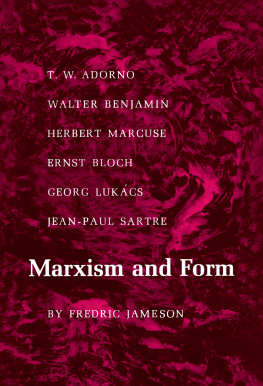


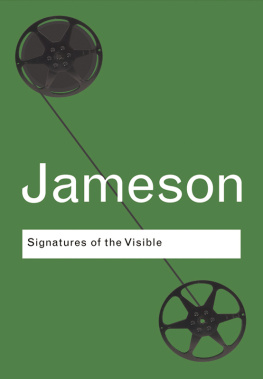
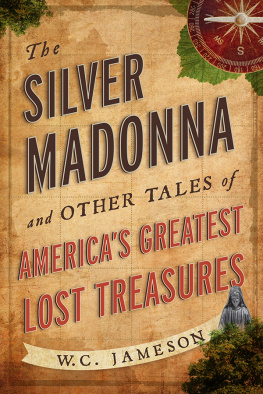
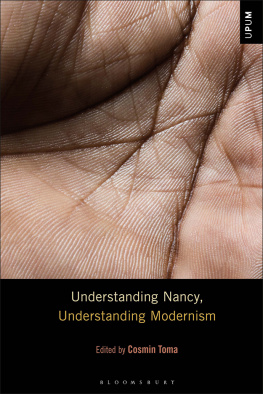
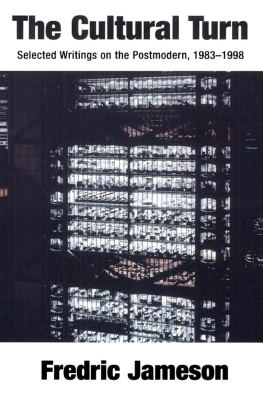


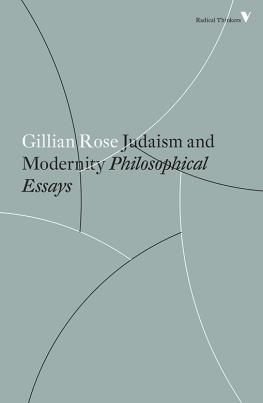
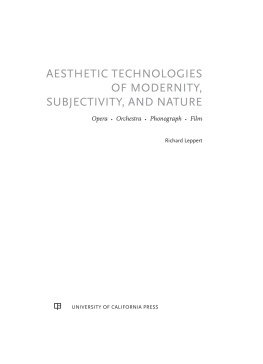
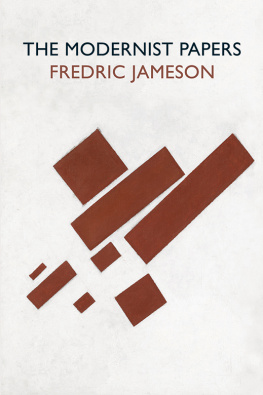
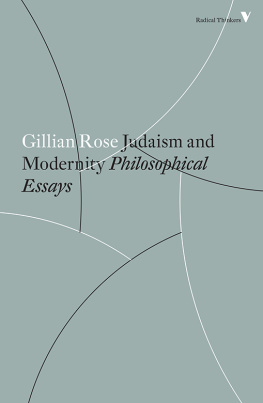
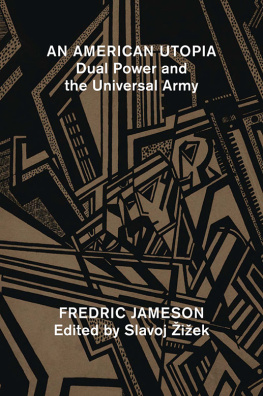
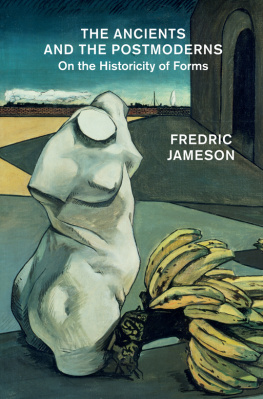
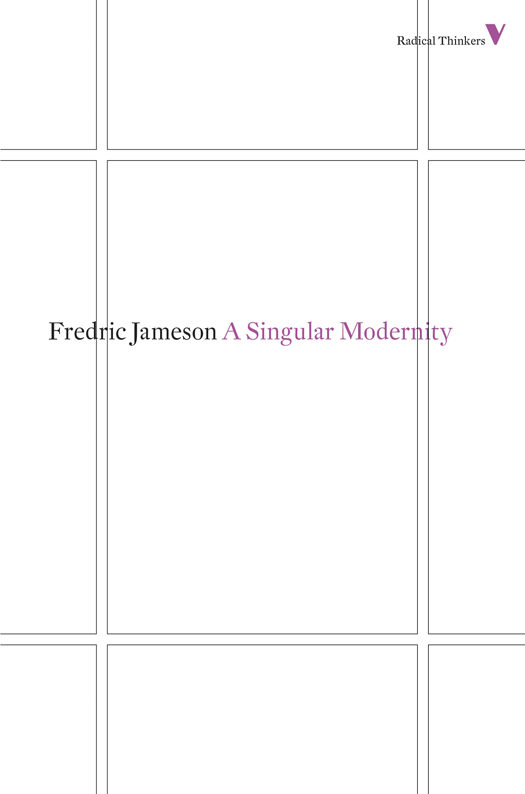
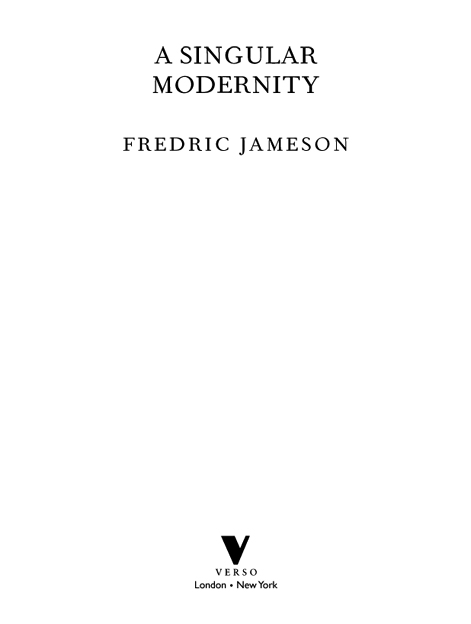
 Contents
Contents